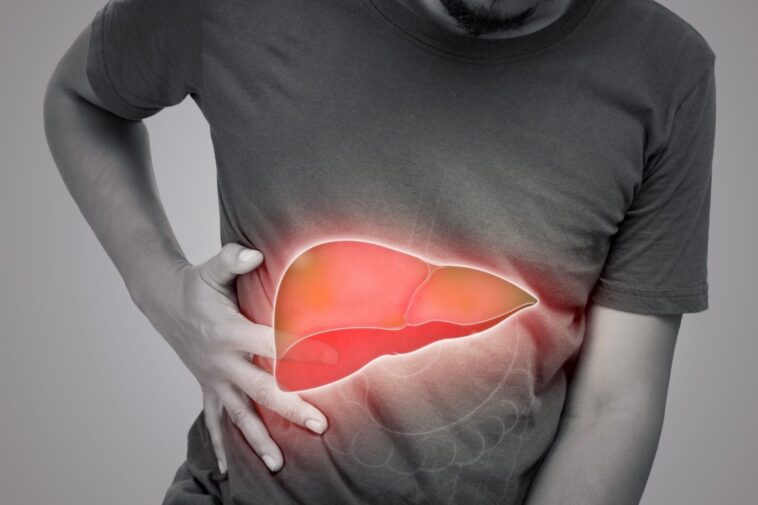Fatty liver disease is a growing health concern affecting millions of people worldwide. While it might not show obvious symptoms initially, it can quietly lead to severe liver damage over time. In this article, we will discuss the warning signs of fatty liver disease and ways to cleanse and improve your liver health.
Understanding the signs and taking early action is crucial for preventing long-term health problems. Let’s explore the warning signs that you may have a fatty liver and some effective strategies to help cleanse and restore your liver’s function.
What Is Fatty Liver Disease?
Fatty liver disease occurs when fat builds up in the liver, making up more than 5% of its weight. There are two main types: non-alcoholic fatty liver disease (NAFLD), which isn’t related to alcohol consumption, and alcoholic fatty liver disease, which results from excessive drinking. Both types can lead to inflammation, liver damage, and even cirrhosis if left untreated.
The liver is essential for detoxifying the body, processing nutrients, and producing important proteins. When the liver is overwhelmed by fat, its ability to function properly diminishes, causing health complications. Early detection and treatment are key to avoiding serious problems.
Warning Signs of Fatty Liver Disease
1. Fatigue and Weakness
One of the first signs of fatty liver disease is feeling constantly tired or weak, even without physical exertion. Since the liver plays a crucial role in filtering toxins and converting food into energy, its compromised function can lead to sluggishness. If your liver is struggling to perform these tasks, you may feel tired throughout the day without a clear reason.
If this fatigue is accompanied by other symptoms, it’s worth consulting a doctor to check your liver function. Fatigue alone is common in many conditions, but when combined with other signs, it could indicate an issue with the liver.
2. Unexplained Weight Gain or Difficulty Losing Weight
When fat accumulates in the liver, the body’s metabolism slows down, making it harder to lose weight. This can also result in unexplained weight gain, particularly around the abdomen. Even with regular exercise and a healthy diet, if your liver isn’t functioning properly, losing weight may seem impossible.
Additionally, fatty liver disease can cause insulin resistance, which can further contribute to weight gain and difficulty managing blood sugar levels. Paying attention to sudden changes in your weight can help you recognize potential liver issues early on.
3. Abdominal Pain and Discomfort
Fatty liver disease may cause discomfort or pain in the upper right side of the abdomen, where the liver is located. This pain can be mild and intermittent or more constant, depending on the severity of the fat accumulation. While this discomfort might be easy to dismiss, persistent pain in this area should not be ignored.
In some cases, fatty liver disease can cause the liver to become enlarged, which may result in a feeling of fullness or pressure in the abdomen. If these sensations are coupled with other symptoms, it’s important to seek medical advice.
How to Cleanse Your Liver Naturally
1. Follow a Liver-Friendly Diet
One of the most effective ways to cleanse your liver is through a healthy diet. Focus on eating whole, unprocessed foods that support liver health. Vegetables like broccoli, spinach, and kale are rich in nutrients that help the liver detoxify the body. Fruits high in antioxidants, such as berries and citrus, also support liver function.
Avoid foods high in sugar, trans fats, and refined carbohydrates, as these can worsen fatty liver disease. Reducing processed foods, sugary drinks, and fried foods will lessen the burden on your liver and improve its ability to heal.
2. Increase Your Physical Activity
Exercise is another key component of liver health. Physical activity helps reduce liver fat, even without significant weight loss. Aim for at least 30 minutes of moderate exercise, such as brisk walking, cycling, or swimming, most days of the week. Regular activity improves metabolism, reduces fat in the liver, and helps maintain a healthy weight.
Studies show that combining a healthy diet with regular exercise can significantly reduce the amount of fat in the liver, lowering the risk of further damage and improving overall health.
3. Stay Hydrated
Drinking enough water is essential for liver detoxification. The liver needs water to flush out toxins and process nutrients efficiently. Aim to drink at least 8 glasses of water a day to keep your liver functioning optimally.
Herbal teas, such as dandelion and green tea, can also provide additional liver-supporting benefits. These teas contain antioxidants that help the liver break down fat and reduce inflammation.
4. Limit Alcohol Consumption
Alcohol is one of the main causes of fatty liver disease, especially in the case of alcoholic fatty liver disease. If you have been diagnosed with this condition or suspect you have it, reducing or eliminating alcohol is crucial for your liver’s recovery. Even moderate alcohol consumption can contribute to liver damage if your liver is already compromised.
For non-alcoholic fatty liver disease, it’s still important to keep alcohol consumption minimal, as it can worsen liver inflammation and slow down the healing process.
Recognizing the early warning signs of fatty liver disease can help prevent more serious complications down the road. If you’re experiencing symptoms like fatigue, unexplained weight gain, or abdominal discomfort, it’s essential to get checked by a healthcare professional.
By following a liver-friendly diet, staying active, drinking plenty of water, and avoiding alcohol, you can cleanse and restore your liver’s health. Making these lifestyle changes not only supports your liver but also improves your overall well-being.


